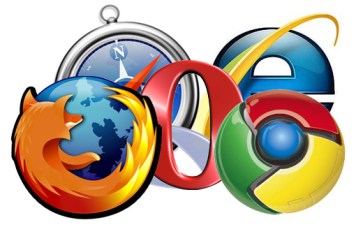 Boss caught you surfing the web during work hours lately? If it happens again, just point them in the direction of the results of a recent survey that show such activity can actually improve productivity.
Boss caught you surfing the web during work hours lately? If it happens again, just point them in the direction of the results of a recent survey that show such activity can actually improve productivity.
Don J.Q. Chen and Vivien K.G Lim of the National University of Singapore conducted the study, titled, “Impact of Cyberloafing on Psychological Engagement.”
They found that a bit of light web surfing can benefit a worker much more than other activities such as sending emails or simply working non-stop without any breaks at all. Browsing the web can refresh the mind and make workers more efficient, the study concluded.
Commenting on the findings, the authors said, “Browsing the Internet serves an important restorative function.”
Two studies were conducted. In the first, 96 undergraduate management students were split into three groups: a control group, a ‘rest-break’ group and a web-surfing group. All 96 subjects were then given a sample text and told to spend the next 20 minutes highlighting as many letter ‘e’s as they could find.
For the following 10 minutes, the control group was given another straightforward task, members of the rest-break group could do what they liked (except surf the web), while the third group was permitted to surf the web. Following that, all of the subjects spent another 10 minutes highlighting more letters.
The results showed that those who were not allowed to surf the web were less efficient and productive than those who were allowed. The surfers appeared to be more refreshed and showed higher levels of engagement than the others in the study.
Explaining the results in an email to the Wall Street Journal’s Rachel Emma Silverman, Dr. Lim explained why surfing the web was more beneficial to a worker than, for example, writing an email. She wrote that when people surf the web, they “usually choose to visit only the sites that they like – it’s like going for a coffee or snack break. Breaks of such nature are pleasurable, rejuvenating the web surfer.”
Emails, on the other hand, are “cognitively more demanding, relative to web surfing, as you need to pay attention to what is said on the email.”
In what will be music to the ears of office workers around the world, the authors of the study said employers should take care not to entirely shut off the Internet to its workers, and to even allow breaks for browsing. A more productive, efficient, and no doubt happier workforce should be the result.
Source: WSJ


